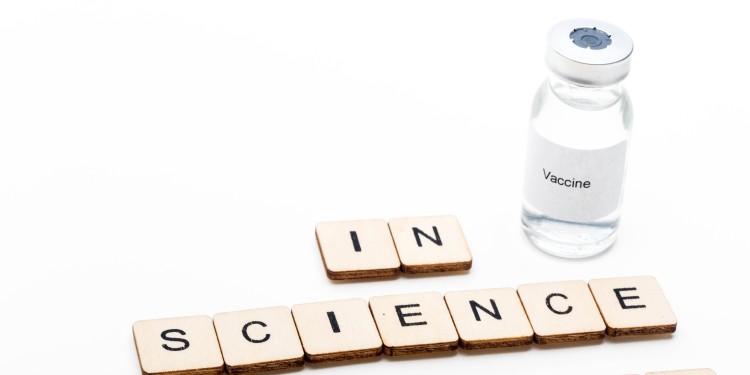
Large majority of citizens trust science
The Corona pandemic has not only impinged on daily life around the world for around two years now – it is increasingly shifting science and research into the focus of public debate. One aspect is the trust people have in the work done by scientists. A team of researchers led by Prof. Rainer Bromme, a psychologist at the University of Münster, now have published a study, which concludes that science has so far passed the pandemic stress test of public trust in science. “The group which mistrusts science is very small, amounting to seven to eight percent of those questioned, and it has shown no increase during the course of the pandemic so far,” says Rainer Bromme. “The large block of the undecided is melting away, which increases the size of the group of people who trust science.”
In September 2019 – before the pandemic, in other words – 46 percent of those questioned said they trusted science. Shortly after the outbreak of the pandemic, in April 2020, this figure increased to 73 percent; in November 2020 it was 61 percent – still well above the level before the crisis. In contrast to the impression given by some media reports, agreement with conspiracy theories and populist assumptions about science declined during the pandemic.
The authors describe a marked rise and a stabilisation in trust on an increased level since the beginning of the pandemic. The results are encouraging for scientists, they say, as these enjoy a high degree of trust. In addition to this, the authors emphasise that a large percentage of those questioned expect politicians to be guided by scientific findings. This expectation too has increased noticeably since the pandemic began and has remained consistently high since then. The study reveals educational level as one of the factors that influence trust judgment: people with a higher educational background have, on average, greater trust in science.
In the “Science Barometer”, people are asked which assumptions about science contribute to trust, and which lead to mistrust. In their analysis, the researchers now conclude that there is an asymmetrical relationship. While trust arises in particular because of assumptions regarding expertise – in other words, scientists’ specialist knowledge and abilities – mistrust feeds on assumptions about scientists’ intentions. If dishonest, bad or egoistic intentions are assumed, this strengthens mistrust. The conclusion to be drawn here is, says Rainer Bromme, that any fundamental populist rejection of established science should best be countered with arguments “which underline the intentions, interests and values of the scientists” and, at the same time, reveal the actual intentions of the populists. In addition, it is always helpful, Rainer Bromme adds, to explain as much knowledge as possible about the pandemic in an easy-to-understand way. At the same time, though, it must be pointed out how complex the research work is. The results of the study also show that any impression that the scientific complexity cannot be understood goes hand in hand with a low level of trust in science. Here, says the report, it is important to explain that the scientific knowledge available is indeed often a difficult matter. As a further means of maintaining trust, the authors recommend that scientists point out academic controversies and indicate the limitations the particular discipline has. This is also a means of countering populist attacks.
The study
According to Rainer Bromme, there are several good studies – both in Germany and abroad – on the relationship between trust in science and the Corona pandemic, in which trust in science is usually mentioned as one of several factors influencing the behaviour of the public in dealing with the pandemic. The current study, in contrast, takes a different perspective. The researchers have put their focus on trust in science, which meant that they were looking for answers to the question of whether the steep rise in trust in science since the outbreak of the pandemic can lead to expect a long-term change in the way the public views science. To this end, they accessed comparable data from September 2019, i.e. before the pandemic. The researchers compared these data with those for the months of April, May and November 2020 (during the pandemic). Each of the datasets of the four representative surveys comprised between 940 and 980 respondents.
The representative public survey “Science Barometer” has been carried out regularly since 2014, at least once a year, by Wissenschaft im Dialog gGmbH. Those involved in the study, besides Rainer Bromme were Niels Mede (University of Zürich), Eva Thomm (University of Erfurt) and Bastian Kremer and Ricarda Ziegler (both Wissenschaft im Dialog, Berlin). The study has been published in the “PLOS ONE” journal.
Original publication:
Bromme, R., Mede, N., Thomm, E., Kremer, B., & Ziegler, R. (2022). An anchor in troubled times: Trust in science before and within theCOVID-19 pandemic. PLOS ONE. DOI: 10.1371/journal.pone.0262823
